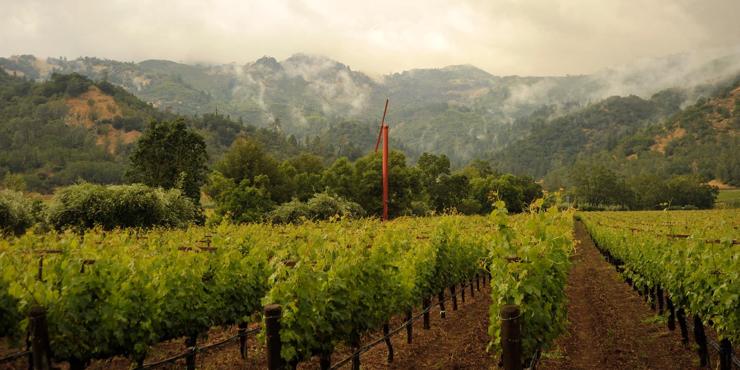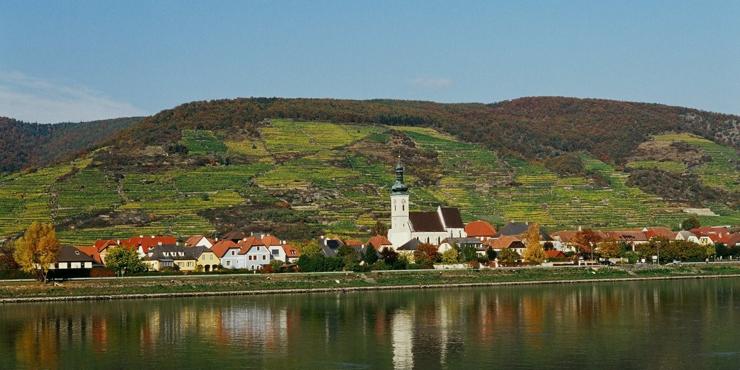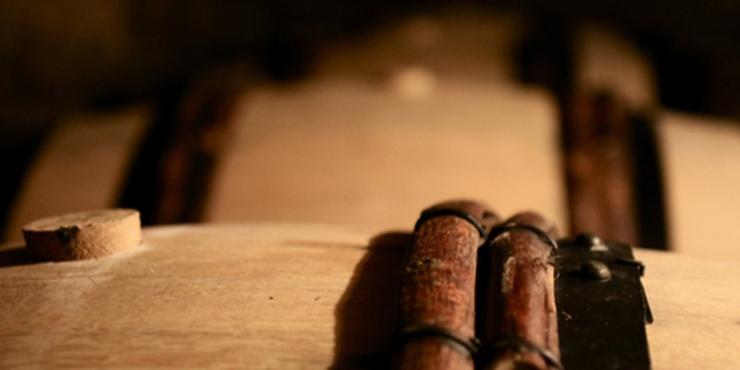
E. Guigal
E. Guigal is an Iconic winery located in the Rhône Valley region of France, celebrated for producing exceptional wines from grape varieties such as Syrah, Grenache, and Viognier. Founded in 1946 by Etienne Guigal in Ampuis, a village at the heart of the Côte-Rôtie appellation, the winery has gained significant acclaim for its exceptional handling of notable Rhône wines, particularly those from Côte-Rôtie, Hermitage, and Condrieu.

EPC
Domaine EPC, hailing from Burgundy, crafts exceptional Pinot Noir and Chardonnay wines. By emphasizing sustainable viticulture and blending age-old traditions with innovative techniques, the wines of EPC are a celebration of Burgundy's intricate terroir, marked by their aromatic complexity and elegance.

Edge Hill
Edge Hill is a historic boutique winery in St. Helena, Napa Valley, producing limited-quantity Cabernet Sauvignon and their signature Mixed Blacks field blend from warm, gravelly loam soils of the original 1867 estate. The meticulously restored stone cellar bridges California's winemaking past and present, with minimal-intervention winemaking that honors traditional practices while maintaining a deliberately discrete profile despite its connection to the Rudd family.

Edmus, Chateau
Domaine Edmus, nestled in Burgundy, is celebrated for its Pinot Noir and Chardonnay wines. Edmus wines epitomize the terroir-driven expression, known for their aromatic richness and balanced structure.

Egly-Ouriet, Champagne
Egly-Ouriet is a grower Champagne producer focusing on Pinot Noir, creating rich, vinous Champagnes that stand out for their depth and complexity.

Egon Muller
Egon Müller, a sixth-generation family estate operating since 1797 from the Scharzhof property in Germany's Saar valley, manages 8.3 hectares of steep, slate-soil Riesling vineyards, primarily in the Scharzhofberger site where 50-year-old vines grow on south-facing slopes. The estate produces wines across all Prädikat levels through traditional methods including multiple-pass hand harvesting and fermentation in old oak fuders, with their noble sweet wines from botrytized grapes representing some of Germany's most significant Riesling expressions.

Eisele Vineyard
Eisele Vineyard, owned by Artémis Domaines since 2013, crafts Cabernet Sauvignon-focused wines from its 38-acre estate in northern Napa Valley, where volcanic and alluvial soils create optimal growing conditions. The biodynamically-certified property maintains small production volumes through minimal-intervention winemaking, utilizing gravity flow systems and French oak aging to produce consistently collectible wines.

Elio Grasso
Elio Grasso, a traditionalist in Barolo, is celebrated for Nebbiolo wines that are structured and capable of aging, deeply tied to the terroir of Monforte d'Alba.

Elio Sandri
Elio Sandri is a Piedmontese producer who maintains a low profile but is known for traditionally crafted Barolo that showcases the depth and purity of Nebbiolo.

Elvio Cogno
Elvio Cogno is a 15-hectare family estate in Novello focused on Barolo production from the Ravera cru, where south-facing calcareous clay-limestone soils at 320-380 meters elevation impart distinctive minerality to their predominantly Nebbiolo plantings. Their winemaking balances tradition with thoughtful innovation through extended 30-40 day macerations, exclusive aging in large Slavonian oak botti, and sustainable vineyard practices that authentically express the classic character of their singular terroir.

Emmanuel Brochet
Emmanuel Brochet is a small grower-producer in Villers-aux-Nœuds (Montagne de Reims) who crafts terroir-focused Champagnes exclusively from his 2.5-hectare Le Mont Benoit vineyard, planted equally to Pinot Meunier, Pinot Noir, and Chardonnay on clay-limestone soils. His artisanal approach includes organic farming, fermentation in neutral oak, extended lees aging, minimal intervention, and extremely limited production of approximately 10,000 bottles annually that showcase his single-vineyard expression.

Emmanuel Rouget
Emmanuel Rouget is a Cult winemaker in Burgundy, celebrated for his outstanding Pinot Noir wines. He is the nephew and former mentee of the legendary Henri Jayer, whose influence is evident in Rouget's winemaking approach. Rouget's Vosne-Romanée and Échezeaux Grand Cru exemplify the elegance, finesse, and aromatic intensity that are quintessential to the finest Burgundy wines.

Emmerich Knoll
Emmerich Knoll is a well-respected winery located in the Wachau region of Austria. Established in the 1950s, the winery is known for producing high-quality wines from grape varieties such as Grüner Veltliner and Riesling. Emmerich Knoll wines are recognized for their balance, minerality, and aging potential.

Enemigo (Aleanna), El
El Enemigo, also known as Aleanna, is a collaboration between Adrianna Catena and Alejandro Vigil in Argentina. Since 2007, they have been making innovative wines that include a unique co-fermentation of Malbec and Cabernet Franc, known for their complexity and intensity.

Envinate
Envínate is a collaborative project of four enology friends who produce small-batch wines from old, ungrafted vines in Tenerife's volcanic terroirs, focusing primarily on indigenous varieties like Listán Negro, Listán Blanco, and Negramoll. Their minimal-intervention approach honors traditional methods—including hand harvesting, foot treading, native yeast fermentations, and aging in neutral vessels—while their innovative work with forgotten vineyards has revitalized interest in the Canary Islands' ancient winemaking heritage.

Eric Rodez
Champagne Rodez is a nine-generation family estate in Ambonnay, farming 6 hectares of Grand Cru vineyards where Pinot Noir dominates their plantings on the south-facing chalky slopes of Montagne de Reims. Owner-winemaker Eric Rodez, formerly of Krug, applies biodynamic viticulture principles and employs a perpetual reserve system for his Cuvée des Crayères, extending aging periods well beyond required minimums to fully express Ambonnay's distinctive terroir.

Errazuriz
Founded in 1870, Viña Errázuriz is a family-owned Chilean estate with 1,056 hectares across the Aconcagua Valley, producing wines from Bordeaux varieties in their inland vineyards and cool-climate varieties in their coastal sites with distinctive schist soils. Their winemaking combines traditional methods with modern technology in their gravity-flow winery, maintaining consistent quality and style across generations while pioneering new terroirs in Chile's viticultural landscape.

Escarpment
Escarpment Vineyard, a medium-sized producer established in 1998 by Larry McKenna in Martinborough, specializes in Pinot Noir grown on the region's distinctive terrace with free-draining alluvial gravel soils that benefit from hot, dry summers and cool nights. Their Burgundian-inspired approach features indigenous yeast fermentation and single-vineyard bottlings that have helped establish Martinborough's reputation for world-class Pinot Noir while demonstrating sophisticated site expression that has elevated New Zealand wines on the global stage.

Etienne Sauzet
Etienne Sauzet is a third-generation family estate in Puligny-Montrachet producing white Burgundy from 9 hectares of holdings, including parcels in four Grand Crus and seven Premier Crus on the limestone-rich soils of the Côte de Beaune. The biodynamic-certified domaine employs traditional methods including whole-cluster pressing, barrel fermentation, and precise oak aging protocols of 11-18 months with 15-40% new oak to express each vineyard's distinct character.

Evening Land (Seven Springs)
Evening Land Vineyards is a focused Oregon producer dedicated exclusively to the historic 80-acre Seven Springs Vineyard in the Eola-Amity Hills, crafting primarily Pinot Noir and Chardonnay from volcanic Jory soils in a microclimate influenced by cooling Pacific winds through the Van Duzer Corridor. Their traditional approach combines Demeter-certified biodynamic farming with minimal intervention winemaking techniques, including native yeast fermentations, judicious whole cluster use, and moderate oak aging to express the distinctive terroir of their east-facing vineyard.

Eyrie Vineyards, The
The Eyrie Vineyards, Oregon's pioneering family-owned estate established in 1965, produces approximately 10,000 cases annually from 60 acres across the Dundee Hills and Eola-Amity Hills AVAs, focusing primarily on Pinot Noir grown in iron-rich Jory soils at elevations of 260-800 feet. Their minimal-intervention approach features sustainable farming practices, native yeast fermentations, conservative oak treatment, and a dedication to lower-alcohol wines with vibrant acidity—a philosophy that earned international recognition when their 1975 South Block Pinot Noir placed second against established Burgundian producers in a 1980 Paris tasting.



